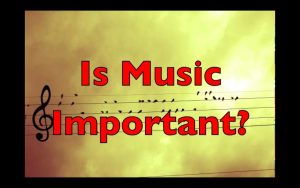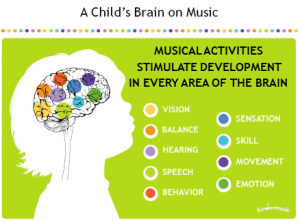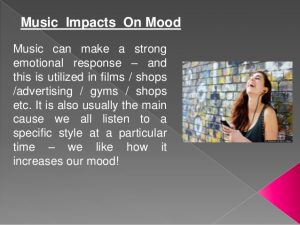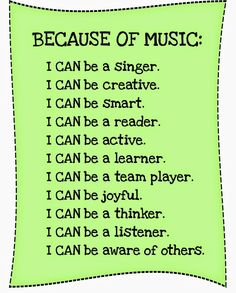music is important !!
 Choice Of Music
Choice Of Music
Our psychological response to any piece of music can enhance or negate the effect of a sound tool. If listeners don’t like the sounds they’re hearing, they won’t want to listen. This is a simple fact. To facilitate effectiveness, you must determine a couple of things when you choose your music:
Who is the intended audience and what kind of music will be best suited for its enjoyment?
What kind of music is appropriate for the psychoacoustic treatment you will visit on it?


Let’s examine the “intended audience” consideration. One of the lovely people I interviewed in Sonic Alchemy was Dr. Fred Schwartz, an Atlanta-based anesthesiologist and former saxophone player. In the operating room, Schwartz has as many music CDs on his anesthesia cart as he has other medical tools. He is an innovator in the use of music and anesthesia and is highly respected for his work. Schwartz shares a poignant story: “I’ve always loved music and thought it had a lot of applications. Beginning in medical school, I used music with some of my patients. But what really affected me profoundly was when I was an intern, working in an intensive-care unit.“I had a seventeen-year-old fellow who had a motorcycle accident. He had become comatose from the head injury. I was taking care of him and spending a lot of nights there. He wasn’t responding to anything and it had been weeks already. So I started playing flute to him and his eyes would move when I played the music. So I thought, ‘Gee, he is responding, there is something there.’


“A psychoacoustic exploration of rock or heavy metal music indicates that the characteristic tempos and timbres create a slightly different result. Rock, in its many manifestations, is usually more uptempo than is rap. The consequent brain wave states will most likely be in beta rather than rap’s low beta or alpha. Heavy metal relies on the distorted sounds of electric guitars. The primary audience for heavy metal is teenage boys.
Rock, in its many manifestations, is usually more uptempo than is rap. The consequent brain wave states will most likely be in beta rather than rap’s low beta or alpha. Heavy metal relies on the distorted sounds of electric guitars. The primary audience for heavy metal is teenage boys.
 Something about the resonance of heavy bass, loud kick drum, and guitar distortion seems to soothe excessive testosterone. Venturing a guess: the heavy bass discharges while the distortions preoccupy the auditory function. (Imagine what the auditory system goes through to decipher and analyze, in real time, the sound of distortion.) The purpose of this conversation is not to judge, pigeonhole, or generalize different styles of music. Rather, my goal is to stimulate your analysis of the effects of tempo (entrainment) and tone (resonance)”
Something about the resonance of heavy bass, loud kick drum, and guitar distortion seems to soothe excessive testosterone. Venturing a guess: the heavy bass discharges while the distortions preoccupy the auditory function. (Imagine what the auditory system goes through to decipher and analyze, in real time, the sound of distortion.) The purpose of this conversation is not to judge, pigeonhole, or generalize different styles of music. Rather, my goal is to stimulate your analysis of the effects of tempo (entrainment) and tone (resonance)”


“When I speak of psychoacoustic treatment, I refer to the different processes of resonance and entrainment necessary to achieve your goals. You will most likely rearrange the music you are adapting in order to accentuate rhythmic pulse, raise or lower pitch, change orchestration, and simplify melodic content. (I will cover these areas in detail shortly.) The main consideration is what kind of music is most easily adaptable. I find that classically oriented music addresses both personal taste and adaptability. Still, I encourage you to try these principles in other musical styles to help diversify the field”
 I can be aware of myself, recovery from illness , destroy or create many things , ETC, ETC……..
I can be aware of myself, recovery from illness , destroy or create many things , ETC, ETC……..
words collected from “the power of sound”
Joshua Leeds.
